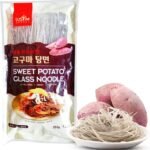Your trusted source for simple, practical nutrition advice and tips for a healthier lifestyle.
If your hair doesn’t like protein, it may become dry, brittle, or break easily. Protein overload can lead to imbalance.
Protein sensitivity in hair is a common issue. Hair needs a balance of moisture and protein to stay healthy. Too much protein can make hair stiff and prone to breakage. People with low-porosity hair often face this problem. They need to be cautious with protein-heavy products.
Opt for moisture-rich treatments instead. Understanding your hair’s unique needs helps maintain its health. Regularly assess how your hair reacts to different products. This helps in creating a tailored hair care routine. Balancing protein and moisture ensures strong, shiny, and manageable hair. Always listen to your hair’s signals for the best results.
Signs Your Hair Dislikes Protein
Understanding the signs your hair dislikes protein is crucial for hair health. Many experience hair issues without knowing the root cause. Here, we’ll discuss key indicators that your hair may not tolerate protein well.
Brittle Texture
Hair that feels brittle often lacks moisture. Protein overload can make hair stiff and dry. Run your fingers through your hair. Does it feel rough or crunchy? This might indicate too much protein.
Healthy hair should feel soft and smooth. If it feels like straw, you might need more moisture. Consider using hydrating products to balance it out.
Increased Breakage
Breakage occurs when hair lacks elasticity. Excess protein can cause this problem. Look at your hairbrush. Do you see more broken strands than usual? This is a sign of breakage.
Healthy hair stretches and then returns to its original shape. Hair with too much protein snaps easily. To reduce breakage, use moisturizing treatments and avoid protein-rich products.

Credit: www.reddit.com
Understanding Hair Porosity
Hair porosity refers to your hair’s ability to absorb and retain moisture. It plays a crucial role in how well your hair responds to protein treatments. Knowing your hair porosity helps you choose the right products and care routine.
Low Porosity Hair
Low porosity hair has tightly bound cuticle layers. This makes it difficult for moisture and protein to penetrate. As a result, protein treatments can cause buildup, leaving your hair feeling stiff and straw-like.
Characteristics of low porosity hair:
- Water beads up on the surface
- Products sit on top of the hair
- Takes longer to dry
For low porosity hair, use lightweight, water-based products. Avoid heavy proteins and oils that can weigh down your hair.
High Porosity Hair
High porosity hair has gaps and holes in the cuticle. This allows moisture and protein to enter easily but also escape quickly. High porosity hair benefits from protein treatments to fill these gaps and strengthen the hair.
Characteristics of high porosity hair:
- Absorbs water quickly
- Dries quickly after washing
- Prone to frizz and tangling
For high porosity hair, use rich, creamy products with protein. Look for ingredients like keratin, collagen, and silk to help repair and strengthen.
Common Protein Treatments
Protein treatments can help strengthen hair. But sometimes, hair doesn’t respond well. This could mean your hair doesn’t like protein. Let’s explore common protein treatments.
Keratin Treatments
Keratin treatments are popular in salons. They use keratin, a protein found in hair. This treatment can make hair smooth and shiny.
Benefits of Keratin Treatments:
- Reduces frizz
- Gives a smooth finish
- Strengthens hair strands
Keratin treatments might not suit all hair types. Some people may find their hair becomes stiff or dry. It’s important to know how your hair reacts.
| Pros | Cons |
|---|---|
| Reduces frizz | Can cause dryness |
| Smooths hair | May lead to stiffness |
Protein-rich Conditioners
Protein-rich conditioners can also help. They add protein to the hair, making it stronger.
Benefits of Protein-rich Conditioners:
- Strengthens weak hair
- Reduces breakage
- Adds volume
Some hair types may not respond well. Hair can become brittle or hard. Always test a small section first.
| Pros | Cons |
|---|---|
| Strengthens hair | Can cause brittleness |
| Reduces breakage | May make hair hard |
Protein Sensitivity Causes
Understanding why your hair dislikes protein is crucial. Various factors can lead to protein sensitivity. Here, we will explore some of the main causes.
Overuse Of Products
Overusing protein-rich products can harm your hair. Too much protein can cause hair to become stiff and brittle. This leads to breakage and damage.
Avoid applying protein products frequently. Use them sparingly to maintain healthy hair.
Genetic Factors
Genetics can play a role in protein sensitivity. Some people have hair that naturally dislikes protein. This is due to their genetic makeup.
If protein treatments don’t suit your hair, it might be genetic. Understanding your hair type is essential.
| Factor | Description |
|---|---|
| Overuse of Products | Leads to stiff, brittle hair |
| Genetic Factors | Some hair types naturally dislike protein |
Alternative Hair Care Ingredients
Struggling with protein-sensitive hair? Don’t worry! There are other ingredients that can help keep your hair healthy and strong. By focusing on moisture and natural oils, you can maintain beautiful locks without the need for protein-based products. Let’s explore some alternative hair care ingredients that can nourish and protect your hair.
Moisture-based Products
Protein-sensitive hair often craves extra moisture. Using moisture-based products can help keep your hair hydrated and soft.
- Aloe Vera: Aloe vera gel is a natural moisturizer. It helps soothe and hydrate your scalp and hair.
- Glycerin: Glycerin is a humectant that attracts moisture from the air. It keeps your hair hydrated.
- Hyaluronic Acid: This powerful ingredient helps retain moisture. It makes your hair look plump and shiny.
Natural Oils
Natural oils can provide the nourishment your hair needs. They can help seal in moisture and add shine.
- Coconut Oil: Coconut oil penetrates the hair shaft. It provides deep conditioning and prevents protein loss.
- Argan Oil: Argan oil is rich in vitamins and antioxidants. It helps repair damaged hair and adds a healthy shine.
- Jojoba Oil: Jojoba oil mimics the natural oils of your scalp. It helps balance oil production and keeps your hair hydrated.

Credit: www.reddit.com
Building A Protein-free Routine
Is your hair not responding well to protein treatments? You might need a protein-free routine. This routine ensures your hair stays healthy and strong without protein overload. Let’s explore the best shampoo choices and conditioner options for a protein-free routine.
Shampoo Choices
Choosing the right shampoo is crucial for a protein-free routine. Here are some top picks:
- Clarifying Shampoos: These shampoos remove buildup and keep your scalp clean. Ensure they are free from proteins.
- Hydrating Shampoos: Opt for shampoos that add moisture and softness. Look for ingredients like aloe vera and glycerin.
- Sulfate-Free Shampoos: Sulfate-free options are gentle on the scalp. They help maintain your hair’s natural oils.
Here is a table of some recommended protein-free shampoos:
| Brand | Product |
|---|---|
| Brand A | Moisture Rich Shampoo |
| Brand B | Clarifying Cleanser |
| Brand C | Gentle Hydration Shampoo |
Conditioner Options
Conditioners are essential for maintaining soft and manageable hair. Here are some protein-free conditioner options:
- Moisturizing Conditioners: These conditioners add hydration and shine. Ingredients like coconut oil and shea butter are great.
- Detangling Conditioners: They help in making hair easy to comb. Look for silicone-free options for best results.
- Leave-In Conditioners: These provide extra moisture throughout the day. Ensure they are light and non-greasy.
Consider the following protein-free conditioners:
| Brand | Product |
|---|---|
| Brand X | Deep Moisture Conditioner |
| Brand Y | Silky Smooth Conditioner |
| Brand Z | Daily Hydration Conditioner |
By choosing the right shampoos and conditioners, you can create a perfect protein-free routine. Your hair will thank you!
Maintaining Hair Health
Keeping your hair healthy is essential. It involves more than just washing and conditioning. If your hair doesn’t like protein, you need to focus on other ways to maintain its health. This means paying attention to regular trims and a balanced diet.
Regular Trims
Getting regular trims helps keep your hair healthy. It removes split ends and prevents damage from spreading. Aim to trim your hair every 6-8 weeks. This keeps your hair looking fresh and strong.
Balanced Diet
A balanced diet is crucial for healthy hair. Your hair needs vitamins and minerals to grow. Make sure your diet includes:
- Protein: Chicken, fish, eggs, and beans.
- Iron: Spinach, lentils, and red meat.
- Vitamin A: Carrots, sweet potatoes, and kale.
- Omega-3 Fatty Acids: Salmon, walnuts, and flaxseeds.
These nutrients help your hair stay strong and shiny. Drink plenty of water too. Hydration is key for healthy hair and skin.
| Food | Benefit |
|---|---|
| Chicken | Rich in protein |
| Spinach | High in iron |
| Carrots | Loaded with Vitamin A |
| Salmon | Contains Omega-3 Fatty Acids |
Combining a balanced diet with regular trims ensures your hair stays healthy. Even if it doesn’t like protein treatments, it can still thrive.
Consulting A Professional
If your hair doesn’t respond well to protein treatments, consulting a professional can be crucial. A hair specialist can provide tailored advice and solutions. They can help you understand why your hair reacts this way and recommend suitable alternatives.
When To Seek Help
- If your hair feels dry after using protein products.
- If your hair becomes brittle or breaks easily.
- If you notice excessive shedding after protein treatments.
- If you experience scalp irritation or itching.
What To Expect
During a consultation, a professional will examine your hair and scalp. They may ask about your hair care routine and products you use. Expect them to perform a strand test to understand your hair’s reaction to protein.
| Step | Description |
|---|---|
| 1 | Initial Assessment |
| 2 | Scalp Examination |
| 3 | Strand Test |
| 4 | Personalized Recommendations |
Based on their findings, they will provide personalized recommendations. This may include changing your hair care products or introducing new treatments.
Consulting a professional ensures you get accurate advice and effective solutions. It can save you time and prevent further damage to your hair.

Credit: curlsmith.com
Frequently Asked Questions
What Are Signs My Hair Hates Protein?
If your hair feels dry, brittle, or straw-like, it may dislike protein. Excessive breakage and tangling are also common signs.
How Can I Test My Hair’s Protein Sensitivity?
Perform a strand test. Apply a protein treatment to a small section of your hair. Observe how it reacts.
Can Too Much Protein Damage My Hair?
Yes, too much protein can make hair stiff and prone to breakage. Balance is key for healthy hair.
What Should I Do If My Hair Hates Protein?
Focus on moisturizing treatments and avoid protein-heavy products. Use hydrating shampoos and conditioners to restore balance.
Conclusion
Understanding your hair’s reaction to protein is essential for healthy hair care. Listen to what your hair needs. Avoid overloading with protein-heavy products. Opt for moisturizing treatments if your hair feels stiff or dry. Balance is key to achieving luscious, manageable locks.
Keep observing and adjusting your routine for optimal hair health.





